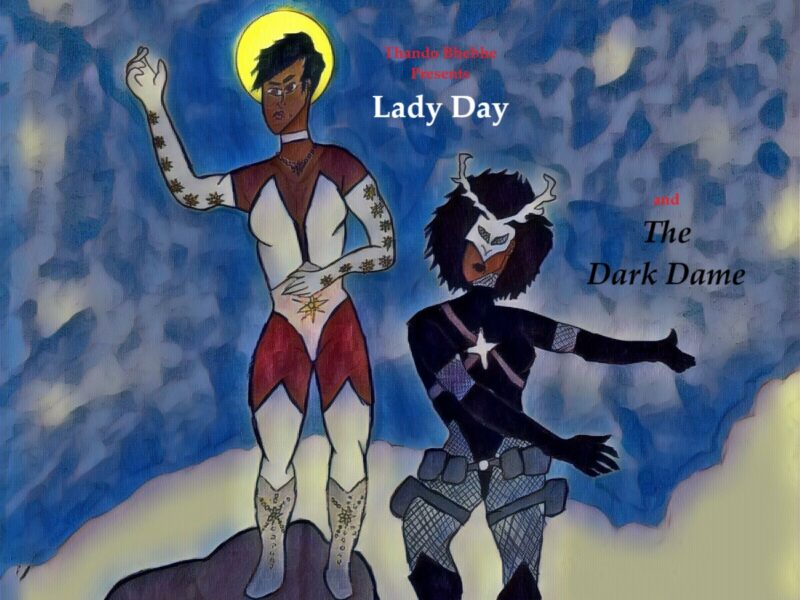Colin Armstrong had just over two hours left to experience what many had enjoyed for eight years. The 18-year-old Brantford resident stood by rows of records at The Mixdown, shortly after 10:30PM on Saturday October 23. A few feet away, in the back room at 1 King Street, an era of music was ending. By this time, most of the acts at the Ford Plant’s final show had finished playing. It was the first time Armstrong had attended the all-ages, not-for-profit venue.
He had heard about the event through Facebook and thought the concert, which was reuniting bands Zefangus, The Bicycles, The Sourkeys and The Vermicious Knid as well as featuring The Racoon Wedding, would “be a pretty good show to go to.”
He wasn’t the only one.
A half-hour earlier, Scott Willson may not have felt the same. Willson, who has been involved in running the Ford Plant since 2005, told one attendee the night was “a lot of stress in a very short period of time.”
“For once in eight years, it’s like we’re a real business in here,” he explained. Only about a hundred people can fit in the Ford Plant at a time, and they were at capacity – something that rarely has happened.
Audiences at the Ford Plant have been known to spend a lot of time on the streets outside, but this time it felt like people were there because, really, they didn’t have room inside. Standing by the ticket table where patrons received their red owl stamps, Willson was feeling the pressure; there were (at least) eight things to do at once, and not many people to do them.
And his band, The Raccoon Wedding, would be playing later. And then, finally he would be saying goodbye to a place he had poured his life into, a place that had tremendously impacted his lifestyle and finances.
A full-time cook at Callaghan’s, as well as an active member of a band, most of his weekends have been planned for him in advance, while working on planning others’ weekends. It was a lot to be a part of, let alone to run. There were a lot of emotions: happiness, sadness, relief.
“I don’t want to say [I’ll be] primarily happy [tomorrow] because that makes it sound like I didn’t love it, when I did.”
He joked he’d have to wring his black Brantford tie out because of the tears.
Willson realizes he “could have left years ago. ”A pause. “…but I would never leave.”
It seems, at times, leaving would have been understandable, if not justified. The goal was never to make money, though money was always needed. There were complaints about noise, prompting a hall license. Before playing the final songs shortly after midnight, Tim Ford, one of the venue’s founders and the only one currently still involved in running it, reminisced from the stage about how it all began.
“I went to school to become a philosopher and quit after two weeks and came home and used the OSAP money to start this place,” Ford said to the audience. Chris George originally joined him in the endeavour. Josh Beam followed soon after.
Since opening in 2002, the Ford Plant provided a place for audiences to see great bands without paying large fees. And while many involved in running the venue count the friendships they formed as the greatest experience, make no mistake, the bands were good.
Audiences at the Ford Plant enjoyed Tokyo Police Club’s music long before Desperate Housewives featured it. Before playing at Madison Square Garden, the Arcade Fire graced the small stage. As Jenna Olender, the Writing and Study Skills Resource Centre Coordinator at Laurier Brantford who researches non-affiliated music production as part of her Ph.D. studies puts it, the Ford Plant “has a lot of street cred.” In 2009, CBC Radio 3 included the Ford Plant in its Top 20 list of best live venues to see in Canada.
And then, there was another type of artist that played there.
The show at the Ford Plant was probably “the only time” Glenn Milchem asked the most well-known band he plays for, “can you do this gig?”
Milchem had played there with his bands Holy Fuck and The Swallows, and when those at the Ford Plant realized his other musical association, they would ask if he could have them play. The requests, Milchem recalls from his home in Toronto, were only half-joking.
But they were taken seriously.
And so, Blue Rodeo came and played the Ford Plant.
It may have seemed a little odd – one of Canada’s most iconic bands playing a venue “in the middle of such a desolate downtown area,” but Milchem said it reminded him of shows they play in England, where the audiences there could have easily fit into 1 King Street. He admits their road manager at the time came in and “demanded things,” but the Ford Plant was not like other clubs that treat their bands well only if they knew they would make money that night. It was its own community, termed “The Ford Plant Collective,” of people who used their gifts, musical and otherwise, some even living there, to make it run.
Samantha Robson, who started coming “as a kid” and has now volunteered for about six years and has lived above the club for two years, described it as a “run-down old place” on the outside “but inside, it’s full of community.”
Kyle Rose, an active member of The Ford Plant Collective for many years, called the Blue Rodeo show “a huge deal.” He remembers they “played an awesome show” and that it turned into a fundraiser of sorts.
But his favourite memories include playing Frisbee on King Street at three in the morning, “stuff that always spills out into the street.” Tyler Springall of The Racoon Wedding counted an early morning Michael Jackson dance party in the street among his favourite memories.
Beyond the accolades, these stories were the real value of the Ford Plant. Olender, who has attended shows for research purposes, appreciates the venue not only for being “a site where the whole gamut of pop music could be found and enjoyed,” or for helping her scholarly work, but also because, as a Brantford native herself, it gave those younger than her an opportunity to experience something she never had.
And they were still trying to grab hold of it that Saturday night, while realizing it was slipping away. T-shirts for sale declared, “I Survived the Last Show at the Ford Plant.” When asked why his involvement ended, Rose admits it “was a matter of moving on, growing up.”
Kevin Skoblenick, a medical student at the University of Western Ontario, spent almost every weekend in 2002 and 2003 at the Ford Plant, and usually comes back a few times a year. It’s the “last note of our childhoods,” he mused standing in the front room, not far from a piano with aged brown keys. Paintings of half-animal, half-human creatures on scrap wood pieces rested upon the top, and Skoblenick had audience members sign the back of one, for memories.
Parker Littell painted those pictures. He started attending shows at the Ford Plant around 2004-2005, back when he was in grade nine. He pursues his visual art as a student at Sheridan College now, but the Ford Plant helped foster his artwork. Saturday’s show was part of the annual Murdered City Music Festival, and Parker has designed posters for that festival in the past. The son of former Ward One City Councillor Mark Littell, a driving force behind the recent demolition of the south side of Colborne Street, Littell sees great things for Brantford.
“It’s strange. I’m like a divorced child,” he said when asked how it feels to be closely associated with a venue across from Colborne’s south side. “I have my family here, who love the south side.” But he knows revitalization will be great for Brantford.
Even to the very end, a kind of revitalization was occurring inside the old building on the corner of King and Colborne. People painted their names in white on the basement’s peeling orange walls. “I (heart symbol) the Ford Plant” read one inscription. “Ladies only” and a female stick figure were added to the lilac-coloured bathroom door, to distinguish it from the blue-doored washroom. Also downstairs, a meeting room, and a paper with “Do not enter” written on it taped to the door. The door wasn’t hinged to the wall, though, and could be easily removed.
The memories will come back, as easily as that door is removed. And while now-former members and patrons hope for new art to grow in the city, they made sure to enjoy the final pieces.
“Turn the lights on!” Tim Ford yelled from the stage as he surveyed the final audience. “That’s my mom!”



